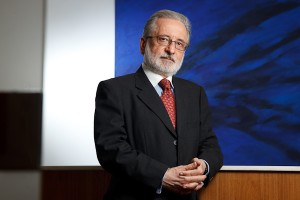Against piracy, laws

The importance of the legal framework as a support for combating piracy and illegal trade is the subject of this article by ETCO President Roberto Abdenur.
Periods of accelerated consumption, such as Christmas shopping, generate year after year, comparative analyzes on the increase in interest in this or that product, growth or decrease in sales and prices, among others. Data, however, can never be measured, even though, unfortunately, it is responsible for a good part of the revenues. The sale of pirated products. The name itself says. It is pirate, it is illegal and therefore immeasurable.
Much is lost with piracy and counterfeiting. Pirated products do not only harm manufacturers, who have invested in research and technology to develop new articles. The consumer loses in product quality and warranty. It also loses security, as the strong link between piracy and organized crime has already been proven. The country loses in tax collection. It still loses in image. Brazil, where pirated products once circulated in even greater profusion, has been on the United States Commercial Representative's Priority Watch List (USTR) for years, a list of countries in which intellectual property rights are not considered adequately protected, which put us at risk of sanctions against our exports.
In 2004, a combination of factors allowed the creation of the National Council to Combat Piracy and Intellectual Property Offenses (CNCP), of the Ministry of Justice. In these eight years, the results have been palpable. Among them is the creation of the Cidade Livre de Pirataria Program, which is under the management of the Brazilian Institute of Ethics in Competition (ETCO). Through the program, municipalities take on the fight against piracy and develop actions in conjunction with the Police and Revenue (at the municipal, state and federal levels), in addition to specific municipal bodies and representatives of civil society. Cidade Livre is already established in Brasília, in five state capitals - São Paulo, Curitiba, Belo Horizonte, Rio de Janeiro and Vitória - in addition to the municipality of Osasco (SP). ETCO's goal, in line with the CNCP's commitment to FIFA, is to involve all the World Cup host cities in the program.
Today, Brazil is seen in a completely different way. Since 2011, it has ceased to appear on the USTR list, which, when disclosing the list, highlighted the work done by CNCP and the country's improvements in this area. In São Paulo alone, a pioneer municipality in the Cidade Livre de Pirataria program, 22 million illegal products were seized in 72 months, valued at R $ 2,5 billion. It was also thanks to this work that Procon of São Paulo obtained the necessary evidence to fine 11 shopping mall administrators for piracy, in the central region of the city.
Initiatives, actions and renewal of legislation show that Brazil is acting to resolve this problem. Law 12.663 (General Cup Law), signed by President Dilma Rousseff in June, allowed an agreement with the International Football Federation (FIFA). By law, anyone who falsifies or misuses any official FIFA or World Cup symbol can be sentenced to up to one year in prison, in addition to having to pay a fine. The penalty is the same for those who sell the product or store it.
The law goes further. It makes the so-called ambush marketing a crime, which is the improper association of a brand or symbol to the event. But this law will only be in effect until the end of 2014. Its implementation is of fundamental importance, but it is worth remembering that, regardless of the holding of major events in the country, the fight against piracy should not be restricted to specific needs. It is up to Brazilian lawmakers to adopt this principle for more comprehensive legislation. Encouraging the drafting of new laws will be a good side effect of the World Cup Law and may help the Cidade Livre de Piracy Program.
Another important aspect of piracy is the falsification of medicines. Brazil is also moving towards curbing this unspeakable crime. Approved in the Senate on June 13, PLS 162/2011 institutes the National Policy to Combat Piracy of Products Submitted to Health Surveillance. The project, which depends on approval by the Chamber of Deputies, focuses on integrating the various governmental actions to combat product piracy that must pass the screening of the National Health Surveillance Agency (Anvisa). It establishes the understanding that piracy is a crime and provides incentives for the training of specialized professionals and the education of producers, suppliers and consumers regarding their rights and duties.
For the actions to be effective, many bills are pending in Congress. Among them, PL No. 1778/2011, which is awaiting the appointment of rapporteur in the Finance and Taxation Committee (CFT) of the Chamber, provides for the suspension and cancellation of the effectiveness of registration in the National Register of Legal Persons of the Ministry of Finance - CNPJ / MF of establishments that distribute, purchase, sell, transport or stock products that have been the subject of counterfeiting, crimes against the brand, tax evasion, theft or theft.
PLS No. 464/2011 determines the suspension of business establishment activities involved in the falsification, adulteration or alteration of medicines, cosmetics and related products. PLS No. 368/2011, which amends Law No. 10.446 / 2002, provides for the Federal Police to have jurisdiction to investigate counterfeit drugs, as well as their sale through the internet, when they have interstate repercussions. That's what we need. Support the passage of laws and the joint action of various powers and bodies to create a siege to combat all forms of illegal trade.



